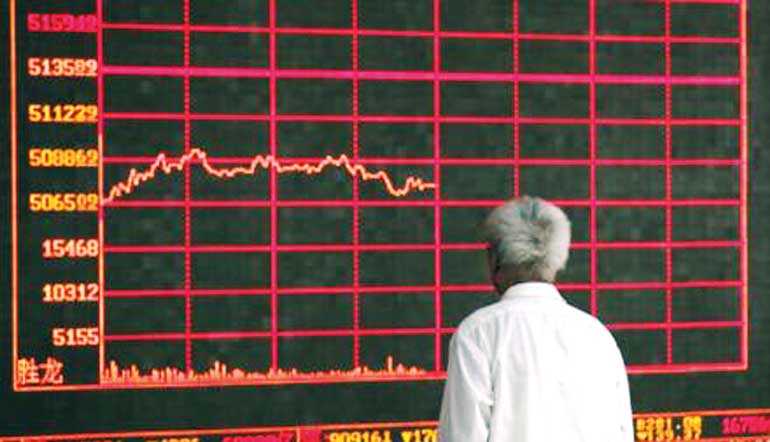Monday Feb 23, 2026
Monday Feb 23, 2026
Thursday, 8 August 2019 00:00 - - {{hitsCtrl.values.hits}}

TOKYO/HONG KONG (Reuters): Shares in Asia fell for an eighth straight session on Wednesday on lingering worries over the escalating US-China trade war, but losses and nerves were soothed somewhat by White House assurances that it wants to press ahead with negotiations.
Signs that China is stepping in to steady the yuan after its recent sharp fall also helped ease investors’ fears of a possible global currency war, though the yuan slipped further in morning trade, keeping markets guessing.
MSCI’s broadest index of Asia-Pacific shares outside Japan was little changed in early trade but turned lower and was down 0.2% by 0459 GMT.
Japan’s Nikkei slid 0.4% on worries that a stronger yen will put more pressure on its struggling exporters.
Shares in Shanghai were little changed after heavy selling in the previous sessions, but Hong Kong’s Hang Seng index fell 0.4% in the morning.
Still, selling pressure was mild compared with the last few sessions, when trade tensions intensified by the day.
MSCI Asia ex-Japan has tumbled 8.3% in its latest losing streak.
S&P e-mini futures fell 0.5%. Wall Street had gained overnight and MSCI’s broad gauge of stocks across the world rose for the first day in seven sessions.
Panicky selling of riskier assets eased after the People’s Bank of China took steps to steady the yuan,
with a firmer-than-expected mid-point fixing on Tuesday and state banks mopping up dollars, sources told Reuters.
Wednesday’s yuan fixing was weaker, however, and just a hair away from the key 7 per dollar level, keeping markets nervous about China’s intentions. Beijing let spot yuan break through the 7 level on Monday for the first time in 11 years, days after Washington threatened to impose more tariffs.
US President Donald Trump dismissed fears of a protracted trade war on Tuesday despite a warning from Beijing that labelling it a currency manipulator would have severe consequences for the global financial order. Washington announced that move on Monday hours after the yuan tumbled.
While Trump played down the prospect that the trade dispute could be drawn out, St. Louis Federal Reserve Bank President James Bullard said the US central bank may be stuck with a volatile global trade environment for years.
Comments from Larry Kudlow, director of the White House National Economic Council Kudlow,
may have also tempered some jitters. He said on Tuesday the Trump administration wants to continue trade talks with China and is still planning to host a Chinese delegation for talks in September.
Many investors believe Trump cannot afford prolonged instability in financial markets since his reputation was staked so closely on economic growth and the success of the U.S. stock market.
The offshore yuan was trading at 7.0812 per dollar, off a record low of 7.1382 on Tuesday but still down 0.39% on the day.
Onshore yuan opened at 7.0369 and was changing hands at 7.0458 at midday, down 0.3%.
Overall, market sentiment remained fragile.
Goldman Sachs said it no longer expects a trade deal to be struck before the November 2020 US presidential election, while Morgan Stanley warned that more tit-for-tat tariffs could tip the world economy into recession by the middle of next year.
That rather grim backdrop supported safe-haven assets,
with gold hitting a six-year high of $1,489.76 per ounce on Wednesday. It last stood at $1,485.
US bonds have also retained much of their gains made in the past week.
The 10-year Treasuries notes yielded 1.66%, lowest since 2016, as investors bet on another rate cut by the Federal Reserve in September.
In the currency market, the dollar traded at 106.10 yen, down 0.33 on the day but off Tuesday’s seven-month low of 105.52.
The euro was up 0.1% at $1.1209. The Australian dollar fetched earlier stooped to 0.66775, a level not seen since 2009.
The New Zealand dollar slumped to $0.6378, a level not seen since 2016, after the central bank eased more aggressively than markets expected, cutting 50 basis points off its official cash rate, to counter pressure on the economy from global trade disputes.